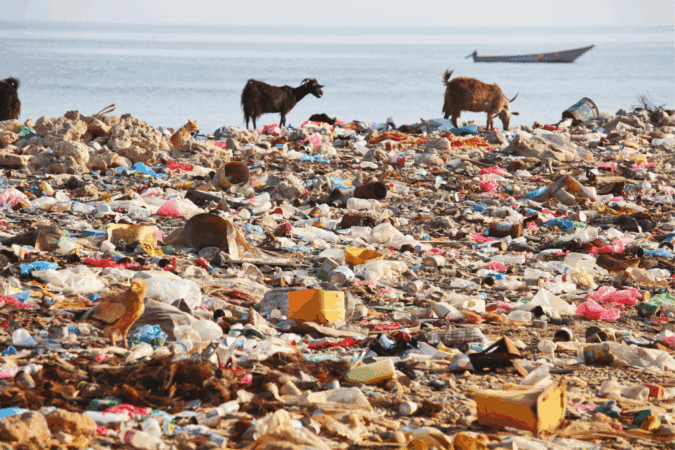

It took more than a decade of serious efforts before realization dawned, and action was taken by India’s states and union territories against plastic bags. At last count, 18 states and union territories had ordered a complete ban on them, while another 5 have partial bans in areas of religious or ecological significance.
Plastic bags, in case you are still wondering, have become culprit no. 1 in terms of visible pollution of water bodies across the country, landfills, and now, groundwater. Not just use, our country has a bigger problem of waste collection when it comes to plastic bags, leading to its spread everywhere. Animals have been particularly badly hit in urban areas, as foraging on waste means they end up swallowing the bags in serious numbers, leading to slow, agonizing illnesses and fatalities. At a global level, we are of course talking about complete ‘dead zones’ in the oceans due to plastics, besides the massive damage to species, both thriving and endangered.
But if you thought that bans would mark the end of the problem, or even the beginning of the end, you could be mistaken, if you check the ground reality in any of these states. Not only do the miserable polluters continue to be used, the open flouting of the ‘law’ is actually a shame, for both the state and users.
Yes, we mention the users because quite simply, it has become obvious that the use of this ecological pollutant will not stop without concerted efforts at behavior change among users. Shopkeepers, be they in the capital Delhi, or a hilly area like Dehradun, lay the blame squarely on users for not carrying their own carry bags, leaving the shopkeeper with no option but to use plastic bags. Interestingly enough, while the bans on plastic have been coming in at almost a new place every month, the government has been unable to take a really drastic step like banning manufacture of the abominations, something a lot of people believe is the only way to reduce usage. Until then, we seem to be stuck in a never ending blame game, even as our rivers, lakes, ground water and much more chokes on the chemical, and massive flora and fauna damage continues unabated.
Thus, for the war on plastic bags to be really effective, we are missing enforcement, clarity on rules regarding alternatives, a sustained campaign on changing user behavior and educating them on the ills, and finally, better controls on manufacturing of these bags. There are some wonderful stories in terms of making places plastics free from across the country, and in every single one of them, the effort has involved getting the local population involved intimately.
Thus, you had the slogan ‘Nalla Nadu, Nalla mannu’ in Kerela’s Kannur district, which translates to good village, good soil. This went a long way in ensuring a plastic free environment there.
Similarly, in the Nilgiris in Tamil Nadu, the administration used pictures of choking animals , besides choked drains and explainers on how plastic pollutes the groundwater, to get the local population to support and practice a life without plastic bags.
India is undergoing a significant influx of urban migration and a reclassification of rural areas,…
India’s quest toward green hydrogen economy received a significant boost with a strategic MoU between…
A new report by S&P Global has revealed that India’s growing biofuels industry is emerging…
In a significant breakthrough for India’s renewable energy and dairy sectors, dairy major Amul has…
Renewable energy conglomerate Anaergia Inc, through its subsidiary, Anaergia S.r.l., entered into a contract with…
Reliance Industries Ltd (RIL) Chairman Mukesh Ambani has announced a massive ₹75,000 crore investment in…